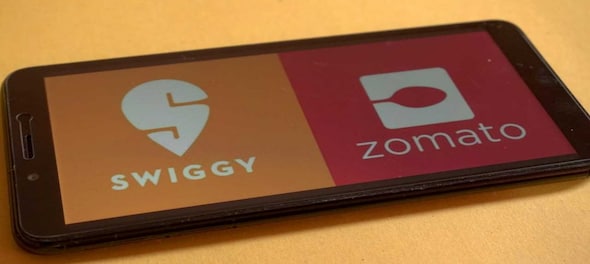
Food delivery apps like Swiggy and Zomato will collect 5 percent GST from consumers for the orders delivered and deposit it with the government instead of restaurants from January 1, Finance Minister Nirmala Sitharaman said after the GST Council meeting on Friday.
The Goods and Services Tax (GST) Council approved the transfer of responsibility of collecting and depositing tax on food aggregators in order to crack down on restaurants that don’t pay taxes.
What did the GST Council say?
According to the GST Council, e-commerce operators will be made liable to pay 5 percent tax on restaurant services provided by them with effect from January 1, 2022. Services provided by cloud kitchens or central kitchens will also come under the ambit of restaurant service and attract 5 percent GST, stated the press release on the 45th GST Council recommendations.
“Since the place where food is delivered will be the point where tax is collected, the Swiggy-like operator who will be collecting tax will pay up the GST on it,” Sitharaman said on Friday.
This only implies a transfer of responsibility of collecting and depositing the tax and does not mean new taxes were being announced, revenue secretary Tarun Bajaj told reporters after the meeting.
"Suppose you order food from the aggregator... now the restaurant is paying taxes. But we found some restaurants were not paying. We are now saying that if you order the aggregator will collect from the consumer and pay to the authorities instead of the restaurant doing this." he said.
"There is no new tax," Bajaj emphasises.
Why shift the responsibility to delivery apps?
The decision follows the proposal of the GST fitment committee to make e-commerce operators liable to pay the tax collected by them on restaurant services. The government had noticed that several restaurants were evading taxes though they were being collected from the consumer.
How do the restaurants evade taxes?
Food delivery apps are registered as tax collected at source (TCS) in GST records. This means, when a customer orders food through Swiggy or Zomato, he pays 5 percent tax on the order to the food delivery app. The food aggregator then passes it on to the restaurants which are supposed to deposit it with the government. However, the government has found that in some cases taxable turnover of suppliers where TCS is applicable was greater than the turnover declared by them.
Once the food delivery apps start depositing tax on behalf of the restaurants, the eateries will also have to mandatorily register themselves under the GST as done by the e-commerce seller.
How will it impact consumers and restaurants?
Nothing will change for the consumer as no new taxes are being levied by the government. The consumer will continue to pay 5 percent tax on the food ordered through the apps.
Smaller restaurants with an annual turnover of less than Rs 20 lakh will be particularly impacted by the decision, believe tax experts. This is because most of these restaurants did not come under the GST ambit. However, they will now need to pay taxes as it would be collected by the aggregator on their behalf.
“Small restaurants, which have less than Rs 20 lakh of turnover, are exempt from GST but if food-aggregators are made responsible, perhaps GST will be applicable on the smaller restaurants too,” Pratik Jain, partner, Price Waterhouse & Co, LLP, told The Indian Express.
Other restaurants will have to maintain two separate books of accounts for their normal business and for food delivered through Zomato or Swiggy.
The move will also make aggregators more tax complaint. However, they are likely to approach the government for more clarity on input tax credits
(Edited by : Anshul)
First Published: Sept 18, 2021 3:03 PM IST
Check out our in-depth Market Coverage, Business News & get real-time Stock Market Updates on CNBC-TV18. Also, Watch our channels CNBC-TV18, CNBC Awaaz and CNBC Bajar Live on-the-go!


Supreme Court says it may consider interim bail for Arvind Kejriwal due to ongoing Lok Sabha polls
May 3, 2024 4:57 PM
10% discount on fare on Mumbai Metro lines 2 and 7A on May 20
May 3, 2024 2:40 PM

